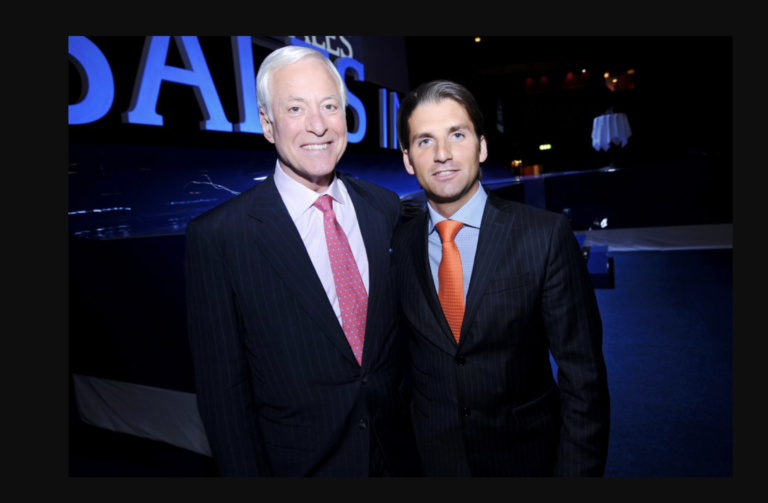Consultative Selling: Building Trust and Expertise
In today’s sales world, the old way of selling is fading fast. Now, a new approach is taking over: consultative selling. This method helps salespeople build strong connections, find out what customers really need, and offer solutions that last. But what makes consultative selling special, and how can it change your sales game?
Key Takeaways
- Consultative selling focuses on building trust and understanding customer needs to offer tailored solutions.
- Active listening and in-depth needs assessments are crucial to the consultative selling approach.
- Consultative sellers position themselves as trusted advisors, differentiating from traditional sales tactics.
- Consultative selling can lead to higher customer satisfaction, repeat business, and long-term partnerships.
- Successful implementation of consultative selling involves sales training, data utilization, and CRM systems.
So, what makes consultative selling stand out from other sales methods? And how can it change your business for the better? We’ll look into the key ideas behind this new approach. We’ll see how salespeople can become trusted advisors and help your business grow for the long haul.
What is Consultative Selling?
Consultative selling is more than just showing and selling products or services. It’s about building a strong relationship with the customer, acting as a trusted advisor. This method focuses on the customer, deeply understanding their needs, and offering solutions. It’s all about working together as partners.
Customer-Centric Focus
This approach puts the customer first. Salespeople act like consultants, focusing on how their solutions solve the customer’s problems. They don’t just push products.
Needs Assessment
Understanding the customer’s needs is key in consultative selling. Sales reps ask questions to grasp the customer’s pain points and goals. This helps them offer solutions that fit the customer’s needs perfectly.
Solution-Oriented Approach
Consultative selling moves away from old sales methods. It’s all about finding solutions that meet the customer’s specific needs. Salespeople work with customers to create custom solutions, not just sell what they have.
Collaborative Partnership
This method builds a strong partnership between the salesperson and the customer. They work together, with the sales rep guiding and the customer making decisions. This approach leads to lasting relationships and loyal customers.
“Consultative selling is about building trust and expertise, not just pushing products. It’s a customer-centric approach that focuses on understanding and addressing their unique needs.”
Benefits of Consultative Selling
Using a consultative selling approach brings many benefits for sales pros and their teams. It focuses on what the customer needs and builds a strong partnership. This strategy leads to increased sales, enhanced customer satisfaction, improved brand reputation, and stronger customer advocacy.
One big plus of consultative selling is building lasting relationships with customers. Sales reps take time to understand their challenges and goals. This makes them trusted advisors, not just sellers. This trust leads to repeat business and valuable referrals.
This approach also makes sales a team effort, not a battle. Sales reps work with customers to create solutions that fit their needs. This leads to higher customer satisfaction and better results, as customers feel heard and involved.
Consultative selling helps sales pros stand out from others. By knowing the customer’s business well, they show how their solutions are the best fit. This leads to improved brand reputation and stronger customer advocacy. This means more increased sales from referrals and repeat customers.
“Consultative selling is not about making a sale; it’s about building a relationship. It’s about understanding the customer’s needs and helping them find the best solution, even if that solution isn’t what you’re selling.” – (Sales Expert, XYZ Company)
Key Strategies for Mastering Consultative Selling
Consultative selling is a way to build trust and show you know your stuff. It makes you a trusted partner for customers. To get good at this, sales pros need to focus on a few key things:
Building Rapport
It’s vital to connect well with customers. This means listening actively, showing you care, and really getting what they’re up against and what they want to achieve.
In-depth Needs Assessment
Really digging deep to find out what the customer struggles with is key. By asking smart questions and listening well, sales folks can understand the customer’s world fully. This includes their business, their industry, and who they’re up against.
Tailored Solutions
With a clear picture of what the customer needs, sales reps can offer tailored solutions. This shows they’re all about the customer’s success and helps build a stronger bond.
Demonstrating Expertise
Showing you know your stuff is crucial. This can be done through writing great blog posts, sharing case studies, and doing webinars. It also means answering customer questions and concerns.
By using these strategies, sales pros can build trust, overcome doubts, and create lasting, mutually beneficial relationships with customers.
Consultative Selling Principles
Successful consultative selling needs key principles. These include balancing questions with insights, building trust through actions, and being conversational and genuine. It also means taking ownership of the sales conversation and listening to the customer. Plus, doing thorough research on customer needs.
- Balance questions with insights: Good consultative sellers ask insightful questions and share relevant insights to guide the conversation.
- Build knowledge-based trust: Showing expertise and understanding of the customer’s challenges builds trust over time.
- Maintain a conversational approach: Being genuine and conversational makes the customer feel comfortable sharing their needs.
- Take ownership while allowing feedback: Sellers lead the sales process but use customer feedback to make sure solutions meet their needs.
- Research customer needs: Knowing the customer’s industry and specific pain points helps sellers offer relevant solutions.
- Listen intently: Listening well lets sellers understand the customer’s needs, leading to better solutions.
Following these principles helps consultative sellers build trust, show expertise, and deliver solutions that create long-term value for customers.
“The best way to succeed in sales is to focus on the customer, not just the product.” – Jill Konrath, Sales Strategist
Consultative Selling: Building Trust and Expertise
At the core of consultative selling is the ability to build trust and show off expertise. By focusing on the customer, sales pros become trusted advisors, not just sellers. This way, they solve customer problems, stand out from rivals, and build strong relationships.
This method starts with a deep dive into what the customer needs and wants. Sales experts then offer tailored solutions that meet these needs. This shows their expertise and makes them true partners in the process.
“The era in which we live demands that we no longer sell products, but rather solutions to problems.” – Walt Disney
Consultative selling shines in complex, customized, or big-ticket industries. It creates a collaborative partnership that leads to better business results. This approach helps in making sales and building a loyal customer base.
Most sellers still follow the old way, focusing on what they know about their products. But with customers having more info than ever, consultative selling is key. It’s all about solving problems, not just selling stuff.
How good a sales team is depends on how well they help improve the customer’s business. By building trust and showcasing expertise, consultative sellers add real value. They become trusted partners to their customers.
Implementing Consultative Selling Strategies
In today’s market, buyers have many choices and lots of information. That’s why the consultative selling approach is key for success. It focuses on building strong relationships and offering solutions that add value. This way, sales pros can increase the value of each customer and get a bigger share of their wallet.
To make consultative selling work, sales teams need good training. They should learn about understanding customer needs, thinking about solutions, and working together with customers. This training is crucial for their growth.
Using customer data analytics and CRM systems also helps. These tools give insights to make sales more personal. By knowing where customers are in their buying journey, salespeople can have better conversations. This makes the sales process smoother.
Personalization is a big part of consultative selling. It builds trust and makes relationships stronger. By using data-driven insights, sales pros can offer solutions that really meet each customer’s needs. This makes the sales experience better for everyone.
As sales change, using omnichannel engagement will become more important. It means using different ways to connect with customers, like in person, online, and through support. This approach helps sales teams offer a unified and personalized experience. It makes them seen as trusted advisors.
“Consultative selling is not about making a sale; it’s about establishing a relationship and providing value to the customer.”
In short, consultative selling needs a full approach. It includes great sales training, using customer data and CRM systems well, personalizing sales, and engaging across many channels. By doing this, sales pros can gain trust, show their expertise, and offer solutions that really meet customer needs.
Case Studies: Real-World Applications
Many industry leaders have used consultative selling with great success. They show how focusing on the customer can really pay off. Let’s look at some examples that prove the strength of this approach.
IBM changed its strategy to be a trusted advisor for businesses looking for cloud computing solutions. They made sure their products met each client’s specific needs. This way, IBM built strong relationships and offered customized solutions that worked well.
HubSpot, a top inbound marketing and CRM provider, also chose a consultative method. They got to know their clients’ problems and goals well. This helped them offer industry expertise and solutions that built long-term relationships.
Xerox saw the value in industry-specific expertise. They provided custom document management solutions for different business sectors. This approach made Xerox a reliable partner, offering customized solutions that made businesses run smoother and more efficiently.
Salesforce, a leading CRM platform, used a consultative approach too. They understood each company’s unique sales needs and challenges. By showing how their CRM could improve sales, Salesforce became a key partner, securing long-term relationships with clients.
“The key to success in consultative selling is to truly understand your client’s needs and challenges, and then provide tailored solutions that deliver tangible results. It’s about building trust and becoming a valued partner, not just a transactional vendor.”
These examples show how consultative selling can change a company’s relationship with clients. It moves from just selling to being a strategic partner. This leads to growth and long-term relationships.
Conclusion
Learning how to sell consultatively is more than just learning new skills. It’s about having a customer-centric mindset. This means focusing on building genuine relationships, understanding what each customer needs, and offering solutions that deliver value. This approach helps sales teams succeed in today’s market and leads to sustainable sales success.
By being consultative, sales people can build strong bonds with their clients. They become trusted advisors who truly care about the customer’s success. They listen well, understand needs, and give advice that fits the customer’s situation. This way, both the customer and the business win. It leads to happier customers, more loyalty, and chances for more sales in the future.
To be good at consultative selling, you need skills, flexibility, and a focus on the customer. By putting the customer first, sales people can handle today’s complex sales world. They can build strong relationships and help their companies grow in a lasting way.
Source Links
- Consultative selling: Building trust and driving success
- Mastering the Art of Consultative Selling: Building Trust and Driving Revenue in the Modern Marketplace
- Consultative Selling: 7 Ways to Win Deals With Consultative Sales
- Consultative Selling: Mastering 5 Key Principles for Success
- Consultative Selling: Building Trust and Adding Value to the Sales Process
- Defining Consultative Selling
- The 5 benefits of a consultative sales approach
- Building Trust with Consultative Selling
- Consultative Selling: What It Is and Why It Works
- 7 Principles of Consultative Selling
- 4 principles of the consultative sales approach
- How to Master Consultative Selling: Principles, Strategies, and Examples
- Mastering Consultative Selling: Building Trust and Adding Value
- How Consultative Selling Builds Trust
- Top 7 Consultative Selling Strategies for Your Sales Team
- Consultative Selling: Strategies for Success | Mailchimp
- Cracking the Sales Code: Lessons from 8 Sales Case Studies
- 15 Real-Life Case Study Examples & Best Practices
- Real-World Examples of Show-Stopping Case Studies That Capture Attention and Close Sales
- ServiceBell – Add live human connection to your website
- What is Consultative Closing? (Explained With Examples)







